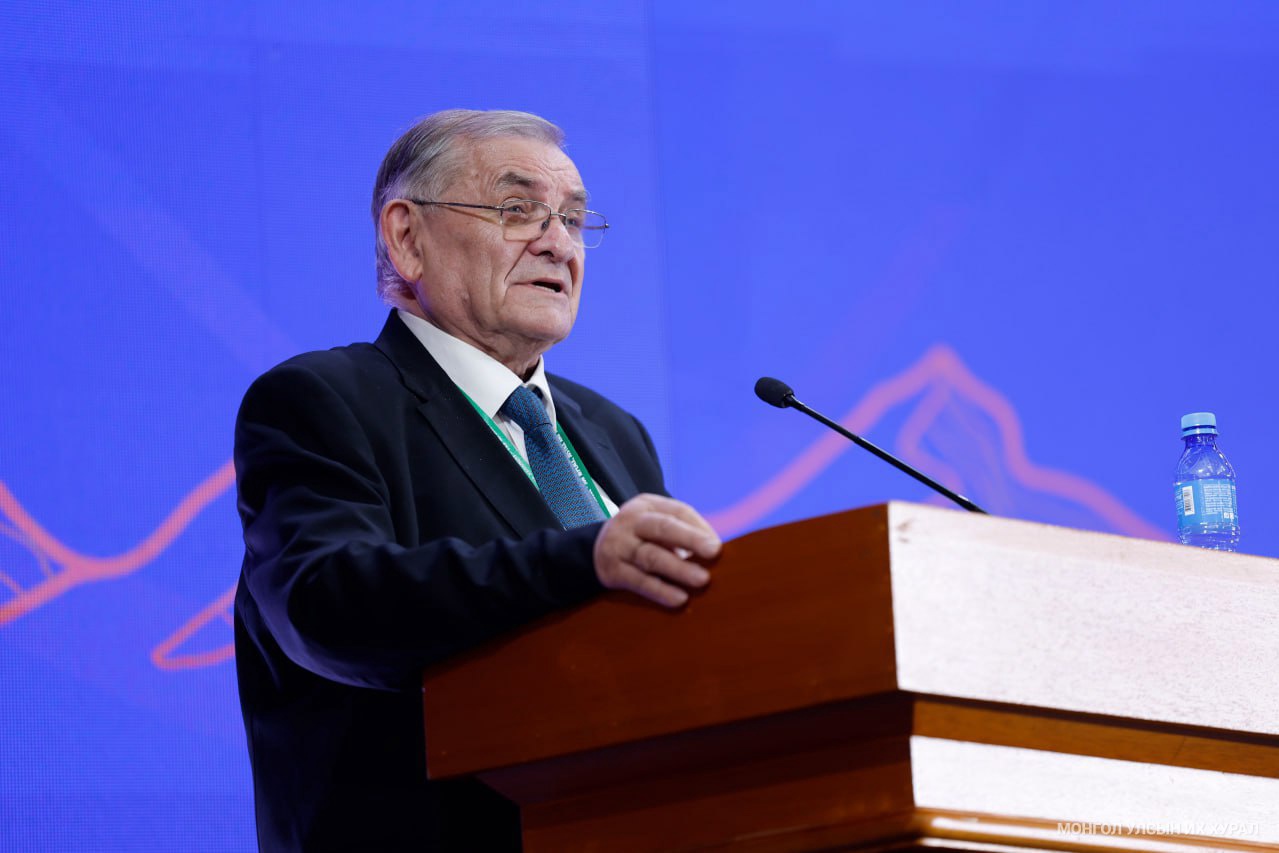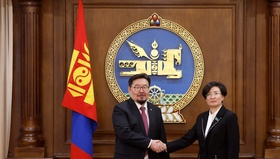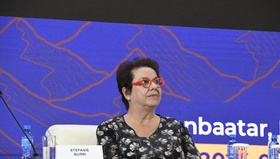PEACE, JUSTICE AND STRONG INSTITUTIONS
Distinguished President Gombojav Zandanshatar, dear Conference participants,
I bring greetings and good wishes from Hungary, from Budapest, from the Hungarian Prime Minister Viktor Orbбn and his government, from Lбszlу Kцvйr, Speaker of the Hungarian National Assembly, and my fellow Members of Parliament. The municipal and EU Parliamentary elections will be held in Hungary on 9 June, so I come from a strenuous domestic and European political world. The stakes are extraordinary, and we have a historic opportunity to have a European Parliament where the majority of the members are pro-peace, working to curb migration, promote economic growth, and wish to overcome the moral crisis.
The concern for a liveable future and sustainable development has been regularly raised at international conferences on nuclear non-proliferation or disarmament, academic meetings warning about droughts and global warming, or political dialogues aimed at preventing mass impoverishment that causes crime and reduces public safety. The response of governments concerned about their future to these awareness-raising events was still only tentative, as they realized the gravity of the problem and that without international cooperation, the efforts of individual countries would be insufficient to tackle the problem. There was a consensus at international meetings that social, economic and environmental sustainability issues cannot be separated and that the whole sustainability dimension must be considered in the legislative process. "Nothing is possible without men, but nothing is lasting without institutions" - this has long been the case, and for success, it was necessary to ensure that organizations provided the conditions for sustainability. A global agenda detailing the Sustainable Development Goals (SDGs), entitled "Transforming our world", was adopted by 193 countries at the United Nations on 10 September 2015. Following its adoption, the National Council for Sustainable Development was established in Hungary, with the participation of all parliamentary groups and delegates from political parties, economic actors, local governments, churches, trade unions and sustainability-oriented NGOs. The National Sustainable Development Council is represented in every county. It is worth mentioning that Hungary had a Sustainable Development Committee in the National Assembly even before the UN Resolution of 2015. The theme of this conference is Goal 16, "Peace, Justice and Strong Institutions", from the UN's package of 17 goals entitled "Transforming our World". This goal requires promoting peace, independent courts, access to justice for all, and open and accountable public institutions for sustainable development.
The 17 goals in the UN's package of proposals are not listed in order of importance since goal 16 is critical because ensuring peace, courts independent of the ruling powers, and reducing corruption and crime are all essential prerequisites for sustainable development.
Securing peace is a fundamental precondition for social and economic development. Without peace, societies will be plagued by external and internal violence, insecurity, and destruction of lives and property. They will not develop but will regress to a less developed level. Today, there are 27 major armed conflicts in the world, most of them civil wars within states. Within Goal 16, signatory states have committed to end the illicit arms trade. Today, the underground arms trade is expanding because illegal arms trafficking always occurs in wars, with the help of corrupt military officers. According to press reports, many of the weapons delivered to Ukraine have subsequently turned up in Afghanistan, the Middle East and Latin America.
The leadership of the European Union severely retaliates against pro-peace rhetoric in the case of the Russo-Ukrainian war. The European Union is blocking thousands of billions of Euros in legitimate payments to Hungary because of Hungary's pro-peace stance. Only the arms suppliers are benefiting - and the illegal arms dealers, but tens of thousands of human lives are being destroyed. Many widows and orphans are falling into a miserable existence. Brussels has sunk to the point where, on 16 April, the Belgian police banned a pro-peace conference in Brussels at which the Hungarian Prime Minister was an invited speaker. Although the event was eventually allowed to take place, it is typical that today, sustainable development is threatened by pro-war politicians who even make dialogue with pro-peace forces impossible. The failure of the sanctions against Russia and the freezing of assets of Russian companies and citizens in many countries have led to a loss of asset security and investor confidence in the European Union.
We have a difficult task ahead of us: what standards of behavior and legislation should international organizations adhere to so that Member States are not forced to take measures or to remain inactive, which would jeopardize sustainable development.
Distinguished Participants,I should mention that altajistics has always played an important role in Hungarian science. Since 2010, after the announcement of the Hungarian government's "Eastward opening" policy, it has also taken on a critical geopolitical role. Our bilateral relations have been significantly strengthened following the reopening of our embassy in Ulaanbaatar in the spring of 2015, marked by a series of high-level visits. I believe that our joint efforts and these meetings increase the volume of bilateral trade. Hungary is following Mongolia's development with interest and sympathy. Hungarian companies are ready to contribute to the success of Mongolia's reforms, especially in areas where they have internationally recognised knowledge and significant experience. The Altai world has changed a lot in the last decade and a half, becoming an essential transport and energy link between Asia and Europe, driven by economic growth in Asia, especially China. The creation of the Turkic Council - Organisation of Turkic States (OCT) in 2009 was an important milestone. Hungary joined the organization as an observer and hosts an office in our country. Hungary also seeks to exploit its relations with the people of the Altai region through this channel.
The large number of university students from the Altai world studying in Hungary can serve as an essential bridge in bilateral relations. The number of applicants for the Stipendium Hungaricum is constantly increasing, as is the number of scholarship places available. The Stipendium Hungaricum scholarship programme currently offers 200 Mongolian students the opportunity to pursue higher education in Hungary. We welcome applications from Mongolian students for the Hungarian scholarship.
Dear Conference Participants,
Finally, I would like to return to the European Union elections on 9 June. There could be a change not only in Brussels but also in Washington with Trump's victory this year. Hungary will be the EU's rotating president after the elections, and this is a historic responsibility for Viktor Orbбn and our government, which has been governing with a two-thirds majority since 2010.
In my decades of political experience, I have learned that you have to prepare for both good and bad scenarios in times of crisis. This conference can prepare us for a good scenario. Its organization, its programmes, and its speakers deserve an excellent rating. My heartfelt congratulations and our thanks to Mongolia's leaders, organizers and speakers for their dedicated work.
Thank you for your kind attention!

 Eng
Eng  Монгол
Монгол


